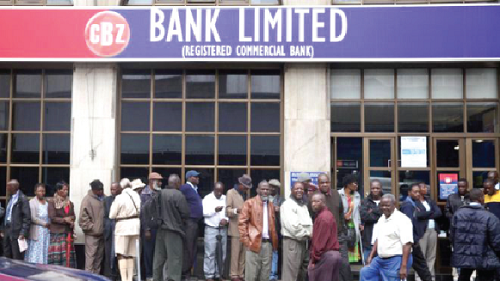
Zimbabwe needs immediate economic reforms — IMF warns
Zimbabwe must act quickly to dig its economy out of a hole and access international financial aid, the International Monetary Fund has warned.
Government spending and foreign debts are too high and it needs structural reform, Zimbabwe mission chief Gene Leon told Reuters news agency.
The country's incoming leader, Emmerson Mnangagwa, has pledged to grow the economy and provide "jobs, jobs, jobs".
The once-thriving economy is now seen as a regional basket case.
"The economic situation in Zimbabwe remains very difficult," Mr Leon told Reuters.
He said high government spending should be reined in and Zimbabwe should address the large international debt it has defaulted on.
"Immediate action is critical to reduce the deficit to a sustainable level, accelerate structural reforms, and re-engage with the international community to access much needed financial support," Mr Leon said.
Robert Mugabe, who led Zimbabwe for 37 years, stepped down earlier this week under pressure from the military and his own Zanu-PF party.
His policies, including disastrous land reforms and printing too much money, are blamed for the calamitous state of Zimbabwe's economy.
Yesterday, Zimbabwe's main opposition called for a deep-rooted political reform to dismantle the repressive aparatus that sustained Mr Mugabe's regime.
The Movement for Democratic Change (MDC) said it was cautiously optimistic that a Mnangagwa presidency would not "mimic and replicate the evil, corrupt, decadent and incompetent Mugabe regime", reported AFP news agency.
It is unclear whether Zanu-PF will govern alone ahead of the scheduled elections next year, or whether a coalition government of national unity that includes opposition groups would be formed.
Zimbabwe has not had a currency of its own since 2009, when the old Zimbabwean dollar buckled under hyperinflation - which is said to have reached 231 million per cent, worse even than the notorious levels in Germany following World War One.
"There used to be so many police roadblocks, with the driver having to pay $1 or $2 (75p-£1.50)" Spiwe Azvigumi, 31, an unemployed mother of three, told AFP.